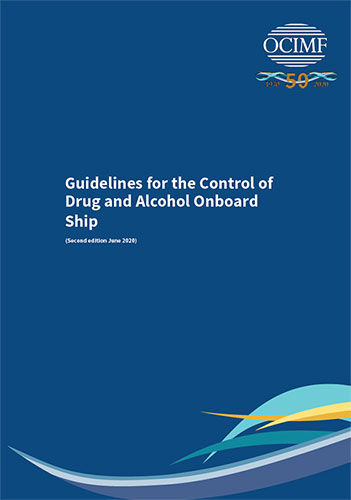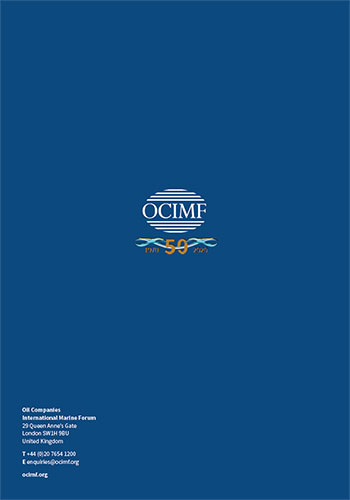Сб с 10 до 16
Guidelines for the Control of Drug and Alcohol Onboard Ship/Руководство по контролю за наркотиками и алкоголем на борту судна
2 июля 2020 года OCIMF отозвала информационный документ "Руководство по контролю над наркотиками и алкоголем на борту судна" из-за технических ошибок в тексте.
Издание на английском языке
The Oil Companies International Marine Forum (OCIMF) and the maritime industry in general recognise the potentially serious impact and risks associated with the use and abuse of alcohol, drugs or other impairing substances by maritime personnel.
Research has shown that a properly designed random workplace drug and alcohol testing programme can mitigate the risk of inappropriate drug and alcohol use and reduce workplace incidents and accidents. The overall objective of Guidelines for the Control of Drug and Alcohol Onboard Ship is to provide guidance for workplace alcohol and drug testing, and to identify employees prescribed medication that could potentially impair their work and who need to be passed fit for duty.
This guideline applies to operators of marine vessels and terminal operators associated with ship and shore operations. It does not address drug and alcohol testing associated with substance abuse treatment, return to work and aftercare testing.
The guideline identifies best practices for the following programme areas:
Drug and alcohol programme management (section 2)
Elements of drug and alcohol policy (section 3)
Position categories and drug and alcohol testing recommendations (section 4)
Medication disclosure (section 5)
Alcohol programme and testing recommendations (section 6)
Drug specimen collection (section 7)
Custody and control forms (section 8)
Stand-down (section 9)
Drug panel (section 10)
Laboratory and drug specimen validity recommendations (section 11)
Drug test review process (section 12)
Oil and gas companies in contract with vessel and terminal operators can refer to this guideline for their drug and alcohol programme requirements. Vessel operators and marine terminal operators can use it to meet the OCIMF guidelines.
Contents
Definitions and abbreviations
Bibliography
1 Executive summary
2 Drug and alcohol programme management
3 Elements of a drug and alcohol policy
4 Position categories and drug and alcohol testing recommendations
5 Medication disclosure
6 Alcohol programme and testing recommendations
6.1 Programme recommendations
6.2 Alcohol testing
6.3 Alcohol technicians
6.4 Alcohol test procedures
6.5 Procedure
7 Drug specimen collection
7.1 Specimen type
7.2 Collector training
7.4 Employer notification
8 Custody and control forms
9 Stand-down recommendations
10 Drug panel
11 Laboratory and drug specimen validity recommendations
11.1 Laboratories
11.2 Specimen validity testing
11.3 Blood testing (for alcohol confirmation)
12 Drug test review process
12.1 MRO review recommendations
12.2 MRO qualifications
12.3 MRO review process
12.4 MRO actions
Appendix A: Marine safety sensitive position list template
Appendix B: Vessel random testing
Appendix C: Drug screening and confirmation cut-off values
Appendix D: Performance verification for POCT devices
Appendix E: Records to be retained
Appendix F: Statistical reporting




